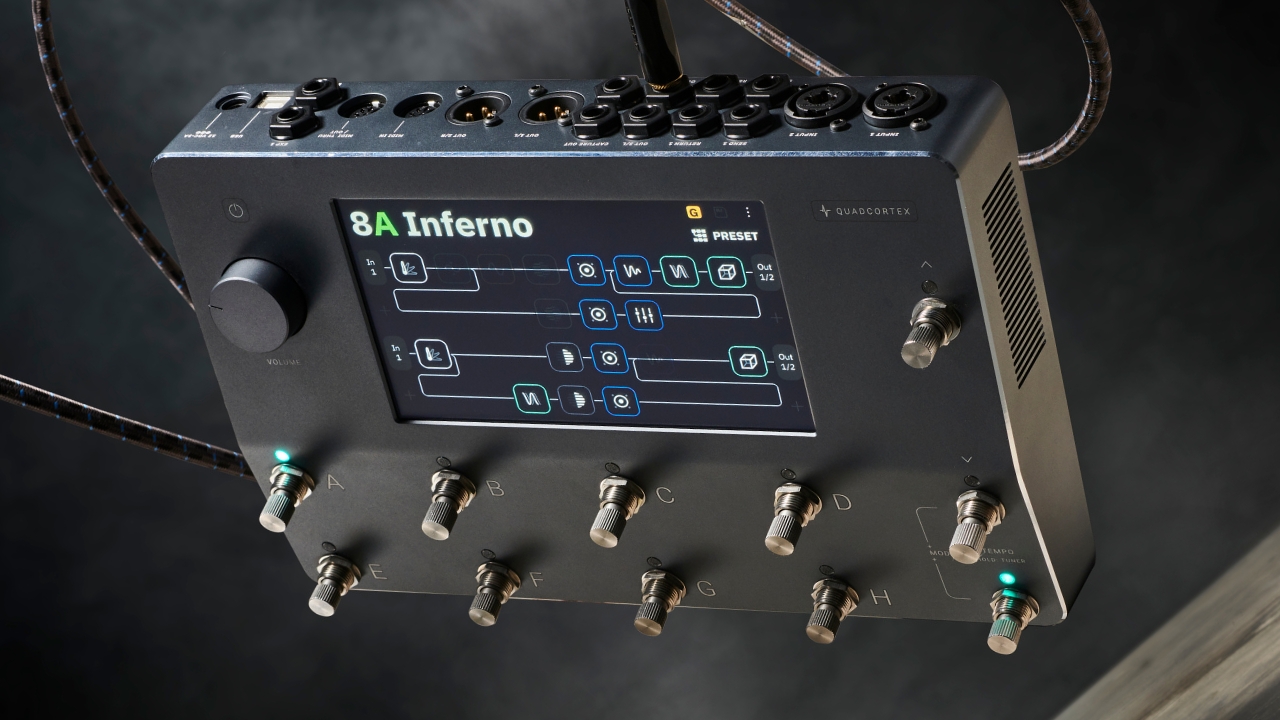“I just found that my old combo amps are so susceptible to dirty power and things coloring your tone”: Chris Shiflett on ditching tube amps for a Quad Cortex onstage, and on his new solo EP
Opting for the modeler due to time constraints around its recording, the Foo Fighters man says its tones get “very close to vintage amps”

Tube amps remain a core part of Foo Fighters' live setup, but when it comes to his solo work, Chris Shiflett has jumped into the modeling world headfirst.
His latest EP, Starry Nights & Campfire Lights, features a country version of Thin Lizzy’s 1976 hit Cowboy Song and an Americana-flavored take on Hanoi Rocks’ Don’t You Ever Leave Me. But despite its nostalgic feel, the tones behind the record are anything but.
“I used a Quad Cortex for all the electric guitars,” he says in the new issue of Total Guitar, meaning that all acoustics were treated differently.
It was a decision spurred on by time constraints, adding: “Truth be told, I didn’t have a lot of time and didn’t want to grab all my old amps and set them up.
“So I just brought the Quad Cortex. It really did the job… I think it sounds very close to vintage amps.”
Though an interesting reveal, the guitarist believes that if he hadn’t made that information public “you probably wouldn’t have guessed, right?” – much to the QC’s credit.
The floor modeler has and will continue to prove a powerful companion for Shiflett on the road.
All the latest guitar news, interviews, lessons, reviews, deals and more, direct to your inbox!
“I know some guitar players purposefully use things like Fractals on their records because then they have the exact same tones for the live shows,” he expands. “That’s what I was thinking. I’ll record with this thing and then I’ve got those sounds on my little device wherever I go on tour.”
Speaking to Guitarist last year, Shiflett detailed the benefits of rocking up to smaller shows sans amp, even if it felt unnatural.
“It feels like total blasphemy,” he admits. “But doing my solo shows, I play a lot of shitty bars with shitty PAs, and oftentimes I’m not traveling with my own sound man. It’s a real roll of the dice – sometimes it’s great and sometimes it’s fucking terrible.”
Shiflett, who has traditionally played through Fender Deluxe Reverbs and old Princetons, adds that, as great as their tones are, the tube amps are “susceptible to dirty power and things coloring your tone.”

The dice-rolling game of working with unknown sound engineers also saw him expand his gear collection elsewhere.
“I’d bought one of those [Strymon] Iridiums to fuck around with in my studio and just loved the way it sounded,” he says. “Live, it just cuts out the middle man.”
Starry Nights… is the follow-up to his 2023 solo album, Lost At Sea, which centered around a much more traditional setup.

“I don’t even remember what the amps were,” he told Guitar Player of the gear behind the latter album last year. “They were boutiquey little things [Cadillac Three's Jaron Johnston, who produced the album] had – and I would pretty much record all the basic tracks with that and whatever pedals I had laying around.”
Of those pedals, an EHX Mico POG, Menatone Red Snapper, and a Strymon Timeline delay became the usual suspects, played through his butterscotch Custom Shop Tele.
You can read that GP interview in full here.
A freelance writer with a penchant for music that gets weird, Phil is a regular contributor to Prog, Guitar World, and Total Guitar magazines and is especially keen on shining a light on unknown artists. Outside of the journalism realm, you can find him writing angular riffs in progressive metal band, Prognosis, in which he slings an 8-string Strandberg Boden Original, churning that low string through a variety of tunings. He's also a published author and is currently penning his debut novel which chucks fantasy, mythology and humanity into a great big melting pot.


